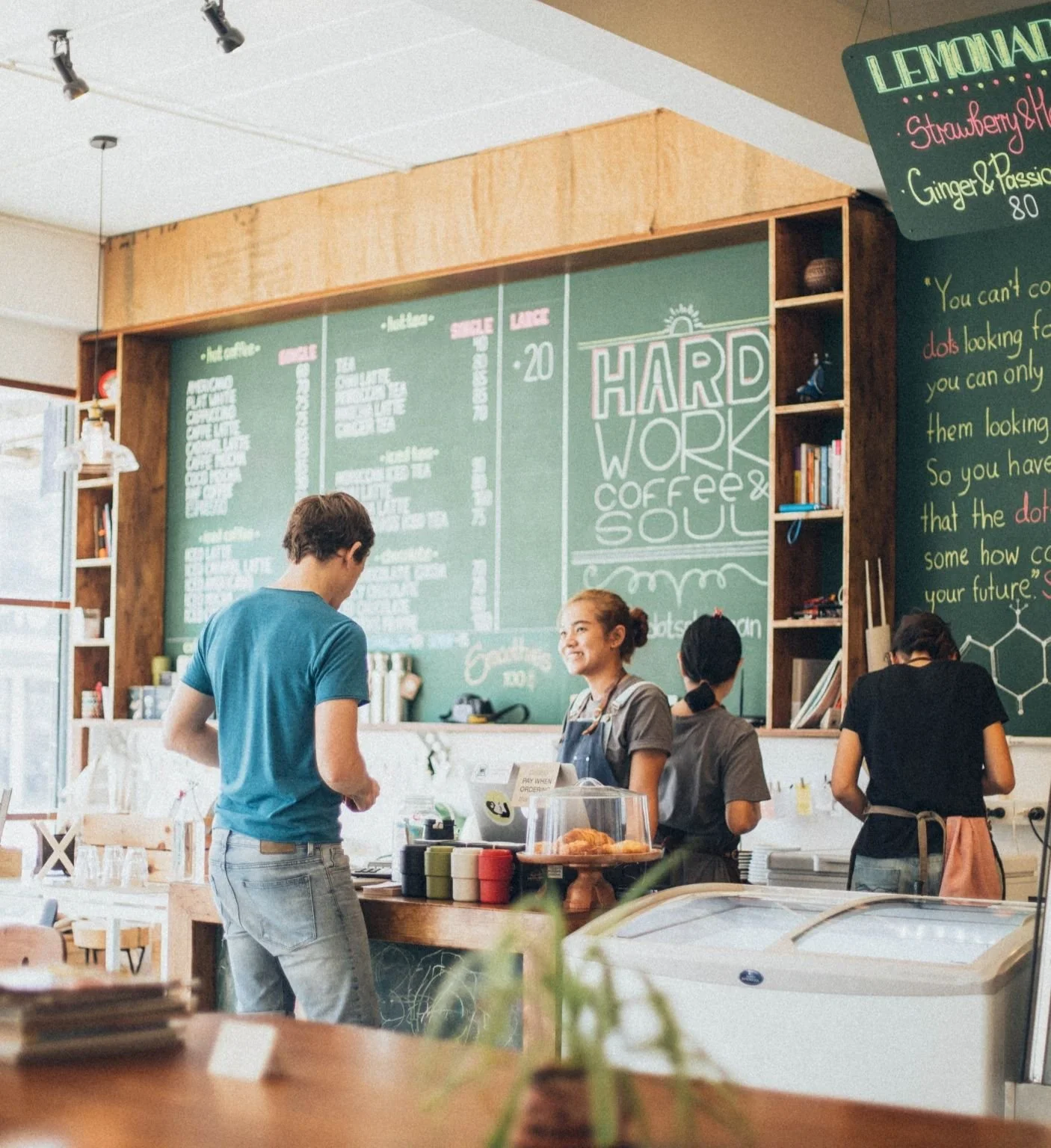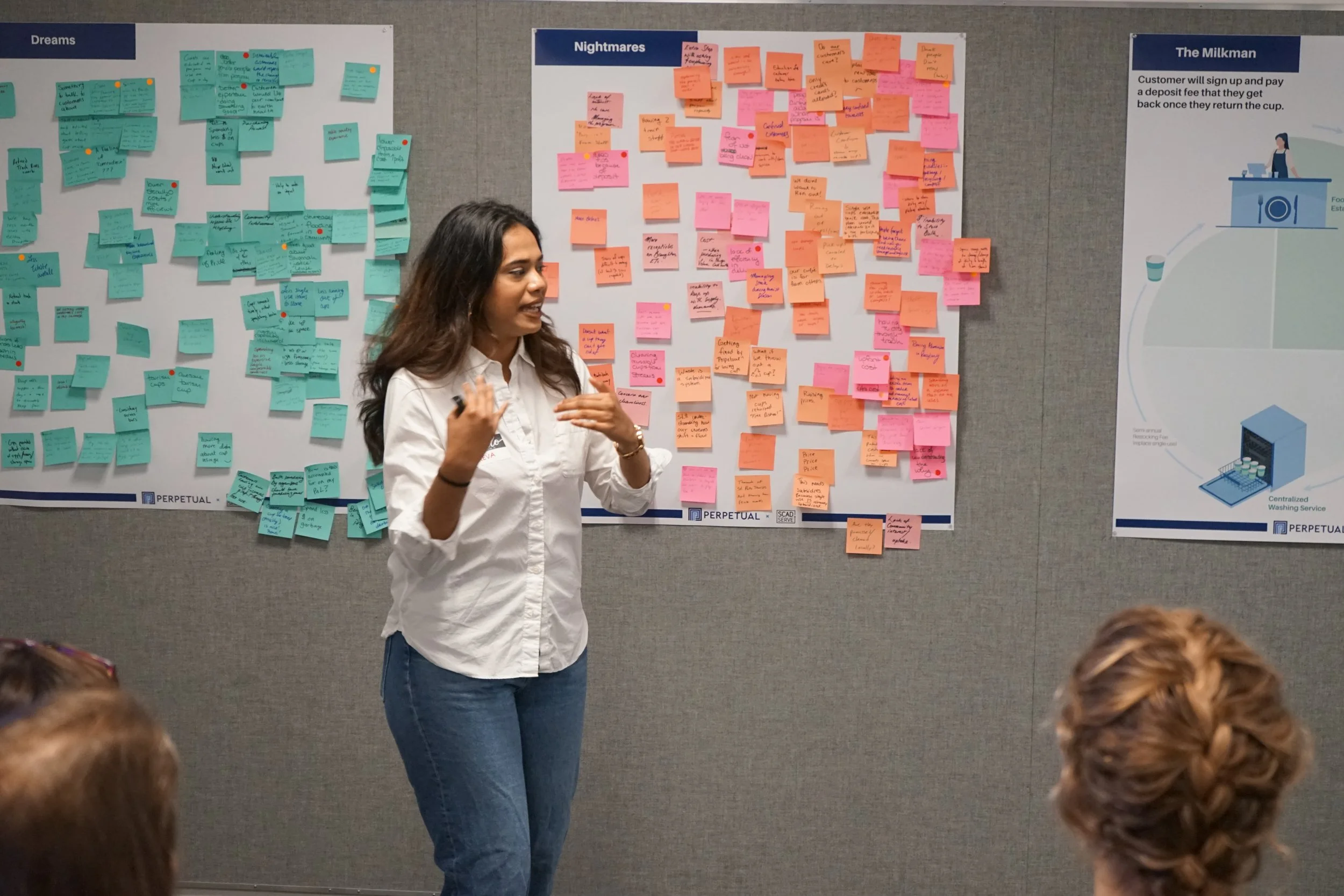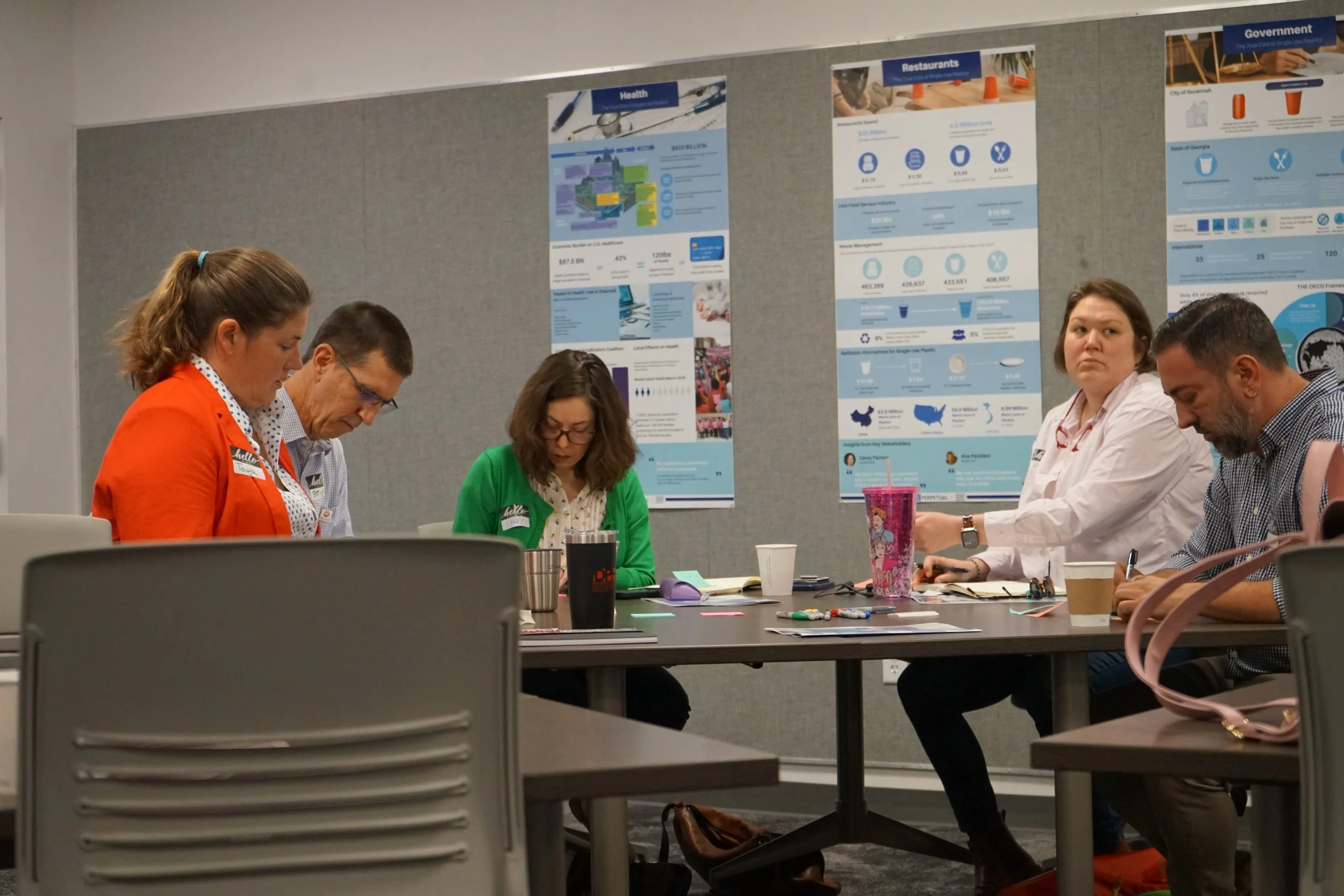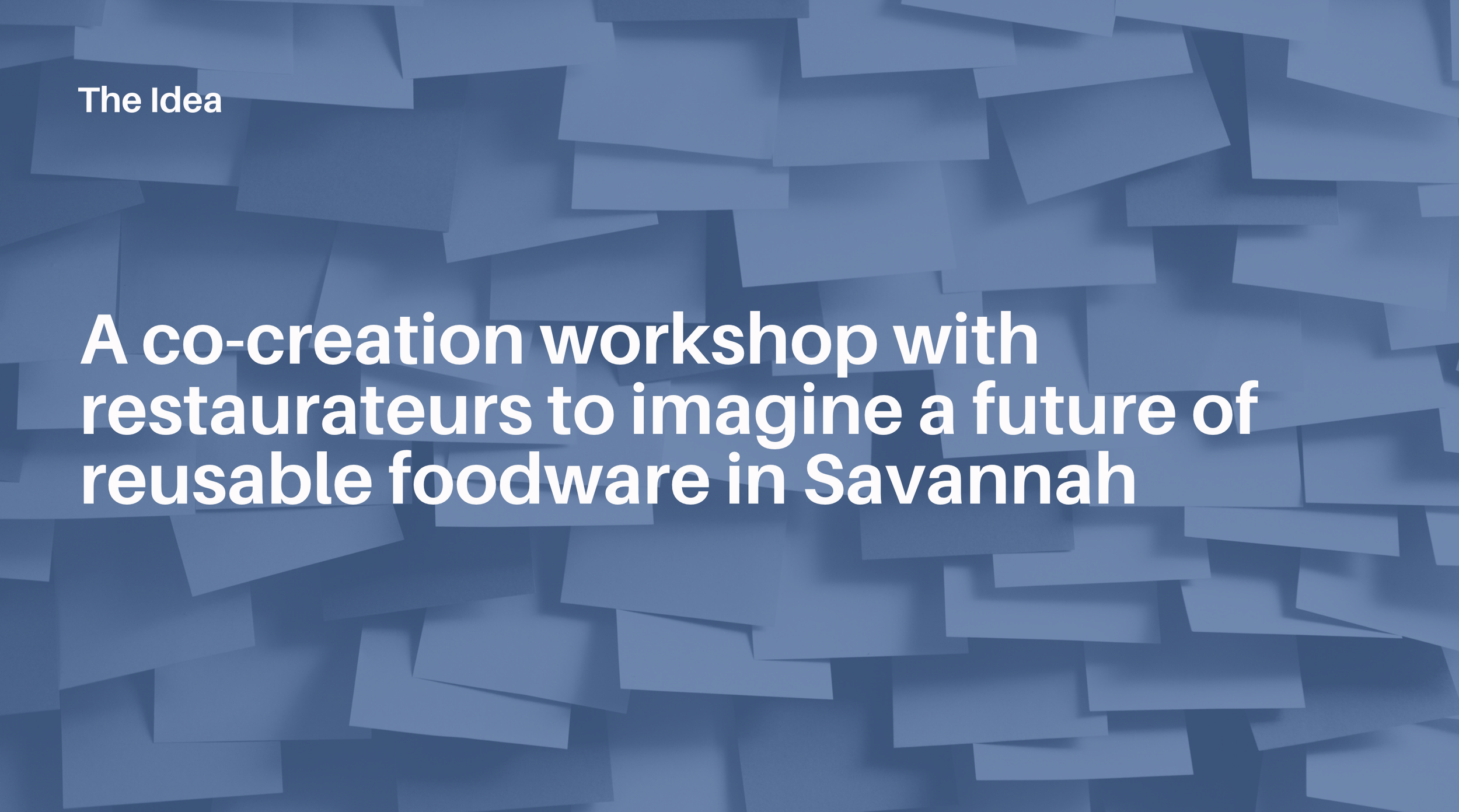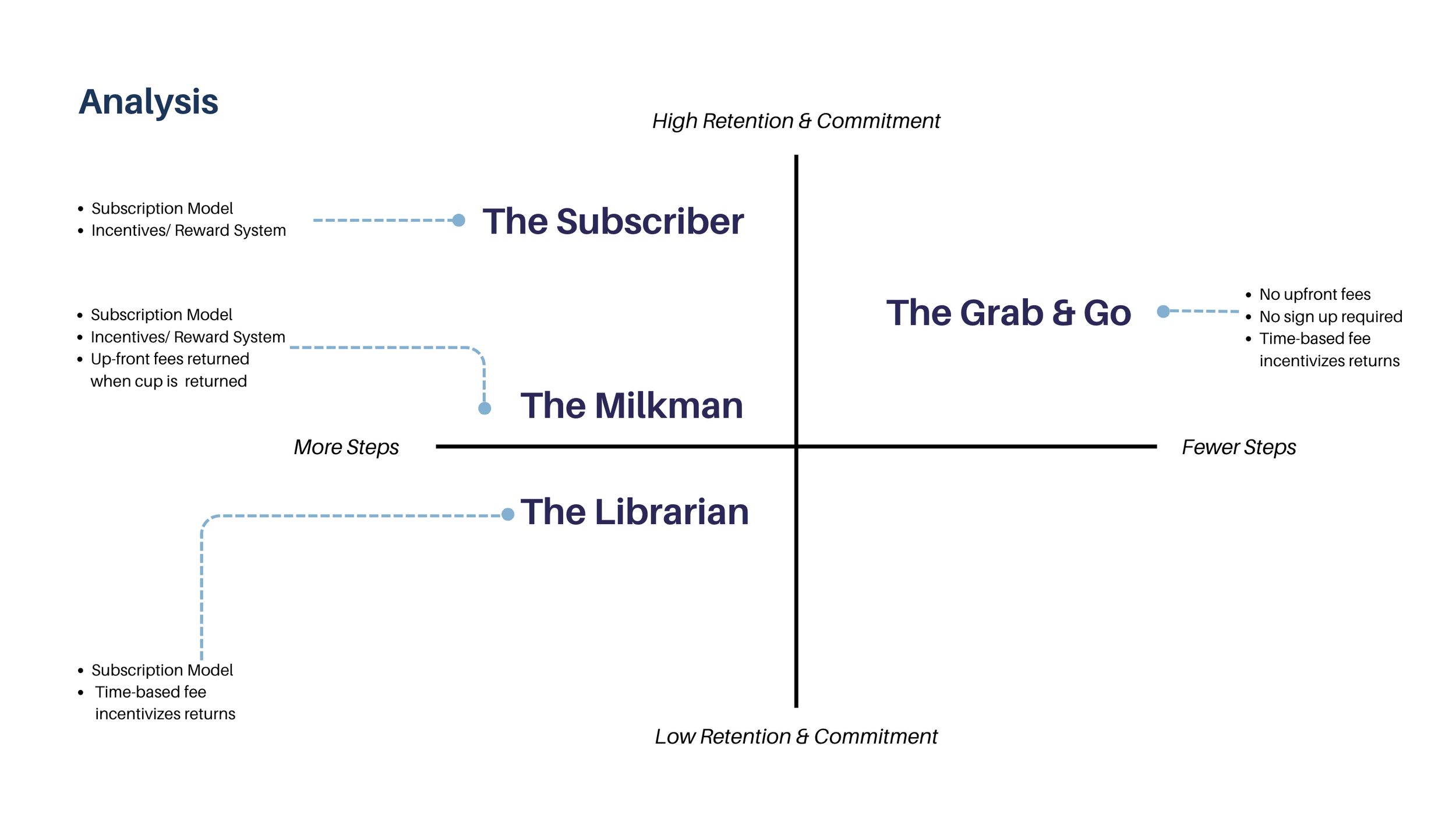perpetual
cost of single-use plastic
project overview: perpetual was an interdisciplinary project under SCAD's Design for Sustainability program, aimed at tackling the environmental and economic challenges posed by single-use foodware in Savannah's food and beverage industry.
By leveraging service design methodologies and fostering collaboration between government, restaurateurs, and sustainability advocates, we designed a scalable reusable foodware system that balances sustainability, profitability, and user convenience.
Jan- March 2024
Stakeholders: Perpetual, SCAD, Savannah Government, Restaurant Owners, City Council
Timeline: 10 weeks
Role: Lead for UX and Service Design
what i did:
as the lead for UX and service design, I:
led service design strategy: mapped the interconnected system of stakeholders, identified key pain points, and developed user-focused solutions and service models.
facilitated collaboration: designed and conducted co-creation workshops with diverse stakeholders, including restaurateurs, city officials, and environmental advocates, to identify actionable opportunities.
synthesized stakeholder insights: translated feedback into practical, scalable service solutions.
advanced UX research: conducted observational research and stakeholder interviews to inform user-centric design.
developed service models: Created four innovative models for reusable foodware systems, ensuring feasibility and stakeholder alignment:
The Milkman: Deposit-refund system.
The Subscriber: Monthly subscription-based access.
The Librarian: Fee-based penalties for delayed returns.
Grab & Go: Pay-per-use model with automatic charges.
-
Methodologies
Stakeholder Mapping: Visualized relationships among government agencies, businesses, and users to uncover leverage points.
Service Blueprints: Defined touchpoints and processes across the customer journey to streamline the reusable cup system.
Ecosystem Mapping: Illustrated the flow of materials, finances, and responsibilities within the system.
Co-Creation Workshops: Engaged stakeholders to collaboratively ideate solutions that align with real-world constraints.
Prototyping and Iteration: Developed low-fidelity prototypes of user journeys for stakeholder validation.
-
Methodologies
Lifecycle Thinking: Assessed environmental impacts from raw material extraction to reuse or recycling.
Circular Economy Frameworks: Incorporated principles of material recirculation and waste elimination.
Systems Thinking: Analyzed interconnected factors like policy, consumer behavior, and supply chains.
Cost-Benefit Analysis: Quantified financial savings and ecological benefits of replacing single-use foodware.
strategy & methodologies
Collaboration and Real-World Application
This project exemplified the power of cross-sector collaboration
-
Partnered with the City of Savannah's Office of Sustainability and Alderman Nick Palumbo to align solutions with local policies and infrastructure.
-
Engaged restaurant owners and managers, such as Ava Pandiani (Starland Yard), to ensure solutions met operational needs and customer expectations.
-
Observed real-world behaviors at high-traffic venues and incorporated feedback into user-friendly designs.
Impact & Scope
Our team delivered actionable solutions with a clear pathway to implementation:
Proposed Pilot: Designed a closed-loop system for Starland Yard and Two Tides Brewing Co.
Scalable Framework: Created a replicable model that could be adapted for other cities.
Real-World Outcomes: Demonstrated potential cost savings of up to $10 billion annually if 20% of single-use foodware were replaced with reusable systems.
OUR PARTNERS
